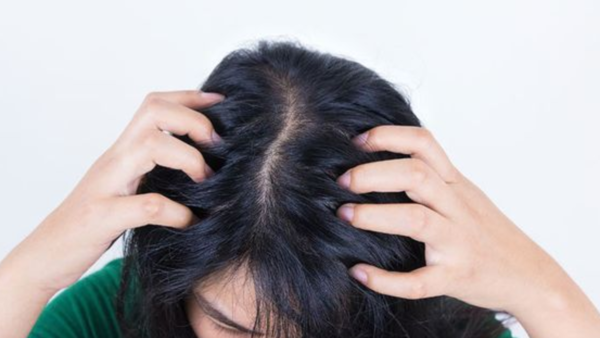In the market, there exist a few supreme natural hair oils which one can make at home. Some of them include Sesame, Almond, Coconut oil, Castor, Jojoba, Argan, Hibiscus, and Olive oil, among others. Even essential oils such as lavender and lemongrass do magic to deliver strong and lustrous locks with an amazing fragrance along with their enriching properties. Benefiting our hair nodes to a great degree, let’s find some of the ways whereby you can determine as to which oil is best for your scalp.
(Image Credits: Pinterest)
Know your hair type
Choosing the right hair oil should begin by knowing all about the kind of hair that you possess. Not all hair is of the same type; in fact, each of them falls under different categories. It’s very important to understand the unique characteristics of each, whether straight, wavy, or curly. For instance, if one has straight hair, then lightweight oils like argan and jojoba are good for the hair. But in the case of curly and wavy hair, heavy oils like coconut, almond, and castor do wonders since they crave moisture and therefore keep a balance.
Discuss your hair concerns
You need to address a particular hair concern and then look out for hair oils accordingly. If your goal is promoting hair growth, then start with castor or hibiscus oil that stimulates hair growth. If you need repair and want to restore your shine and vitality, then argan oil is the one for you. But, in case of hair loss problems, you may use oils with palmetto added to them, as it blocks the DHT hormone causing hair loss problems.

(Image Credits: Pinterest)
Check your scalp conditions
Hence, choosing a hair oil first begins with the nourishment of your strands and catering to your scalp’s specific needs, which is mainly responsible for overall hair growth and hair quality. Thus, if you deal with an itchy or dry scalp, then start using lavender, rosemary, and tea tree oils, which fight irritability and soothe the irritation. But if you have an oily or greasy scalp, then go for light oils like apricot kernel oil or grapeseed.
Check all the ingredients
Always make sure to look at the ingredients on the bottle and the nutrients that would satisfy the needs. Natural and organic oils have no chemicals, nor do they contain additives, so try as much as possible to go for those oils that underline the key components of your issues and that would benefit you the most. Check the label and look out for things such as essential oils, biotin, and keratin, and compare them with your hair care needs.
give it a few trials
Don’t come to a permanent conclusion after trying the oil once or twice. Give it a few trials, applying twice a week for 2-3 weeks. If you don’t find any changes post-wash, then try a new solution for your problems, and don’t stick to one just because you tried it once. If you find your perfect oil and do happen to notice some significant results, discontinue the experimentation and then stick with the oil.
Top 10 tips for achieving acne-free clear skin
Thus, picking up the right hair oil depends basically on your scalp and your hair texture. To get good long tresses, read all the details about ingredients, know more about your scalp, experiment for a short time, and then process further, introducing the oil into your hair care routine.











